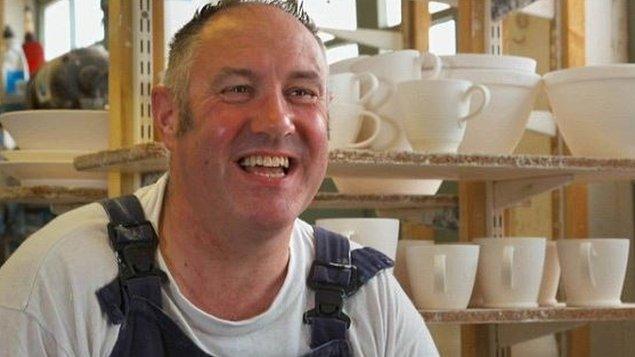Great Pottery Throwdown: TV star's Pwllheli apprentice plan
- Published
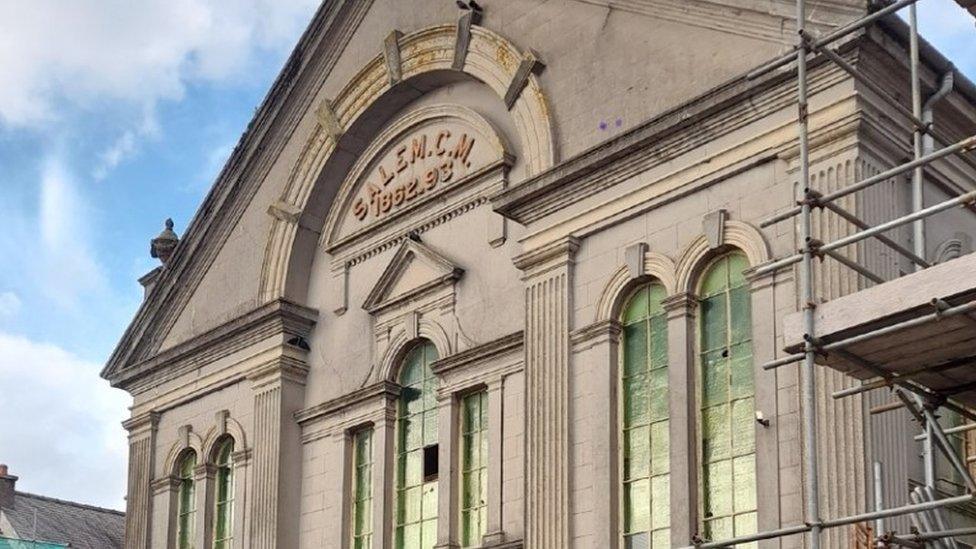
Capel Salem in Pwllheli was originally built in 1862 before enlargement, and is Grade II listed
A judge on The Great Pottery Throwdown TV series has spoken of his plans to start apprenticeships in the art from a converted chapel in north Wales.
Keith Brymer Jones hopes the people he helps train will go on to have a career in pottery.
He and his wife Marjory Hogarth have bought Capel Salem in the centre of Pwllheli, Gwynedd.
He said they were "incredibly excited" about moving in "lock, stock and kiln" from the south-east of England.
Mr Brymer Jones has been a judge on the series since it began on the BBC in 2015, and continued in the role since the programme moved to Channel 4.
The work on the chapel will feature in a new Channel 4 programme.
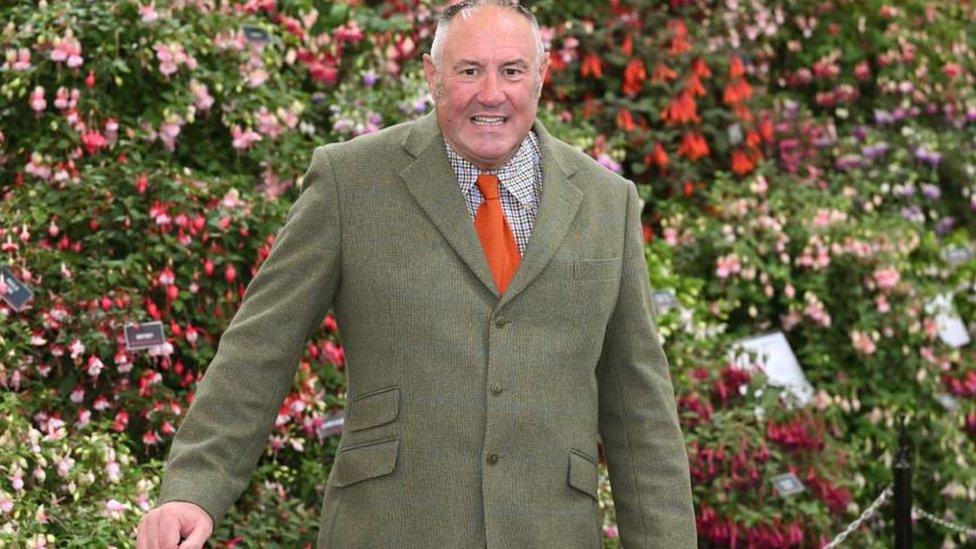
"The really exciting thing is that by next week the builders move in and things will be able to transform," says Keith Brymer Jones of the chapel
The building, which was originally built in 1862 before being enlarged, was previously owned by the Presbyterian Church of Wales.
He told BBC Radio Wales Drive: "It's about 8,500 sq ft (790 sq m), it's got two halls and it's right in the heart of town. One hall we're going to kind of live in and the other hall will be my own pottery studio.
"I'm starting an apprenticeship scheme for people in the local area to have a go and possibly a career in pottery. So Marje and I are incredibly excited about coming up to Pwllheli to live there."
Work is still underway on renovating the Grade II listed chapel.
"At the moment we've just got rid of a load of pigeon poo in one of the ceilings," he said.
"That cost rather a lot of money and you'll be able to see all that on the series. But that had to go because it was terrible, it was really toxic.
"We're now at the stage of pulling out all the dry rot, hence the rubble and stuff in the chapel.
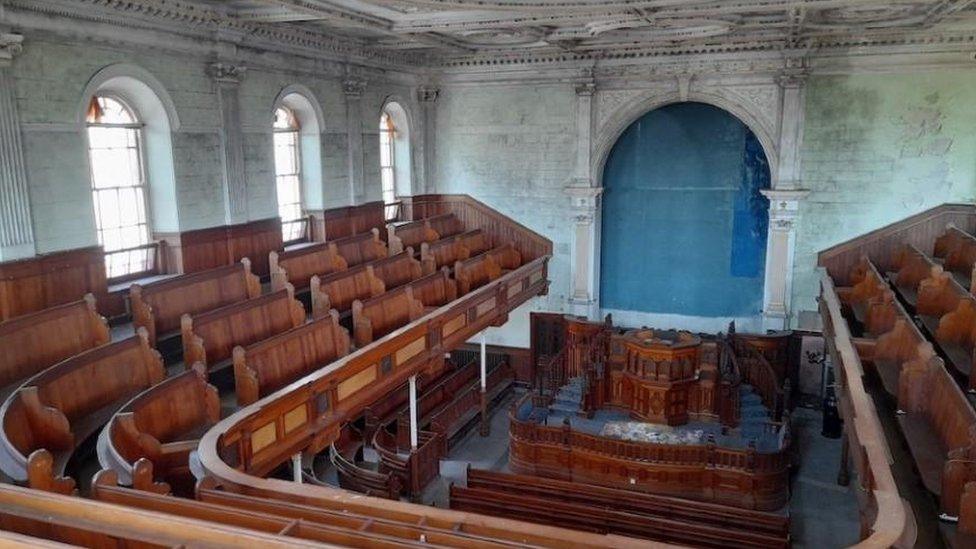
The main nave at Capel Salem, Pwllheli, which has been bought by Keith Brymer Jones
"But the really exciting thing is that by next week the builders move in and things will be able to transform and hopefully we'll be able to live up there by the end of this year."
He spoke before the final of this year's Great Pottery Throwdown is shown on Channel 4 on Sunday.
The presenter said deciding who to send home from the competition was difficult, and he is known for crying during the programme as he wrestles with his emotions.
"The thing is that they all work so incredibly hard," he said.
"They all start off with this bag of clay on the bench and give us some really weird and wonderful stuff.
"But not only that they also incorporate their own personal stories within what they make and that is incredibly touching. And also when they tick all those boxes for us it's truly amazing."
He said he and his wife also plan to learn Welsh.
"Up here in Pwllheli 80% of the people speak Welsh and we come across people that really struggle to speak English and I kind of like that."
Related topics
- Published7 December 2021
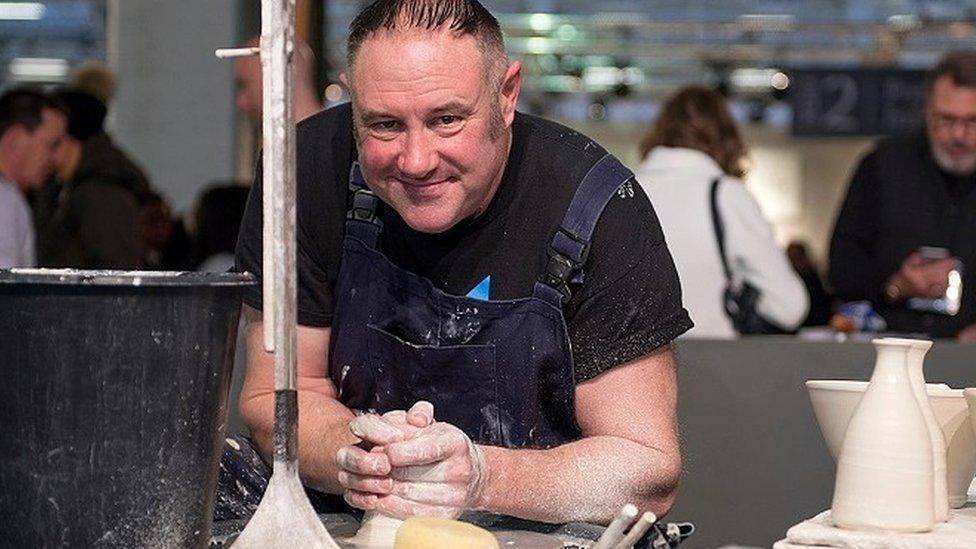
- Published18 February 2018
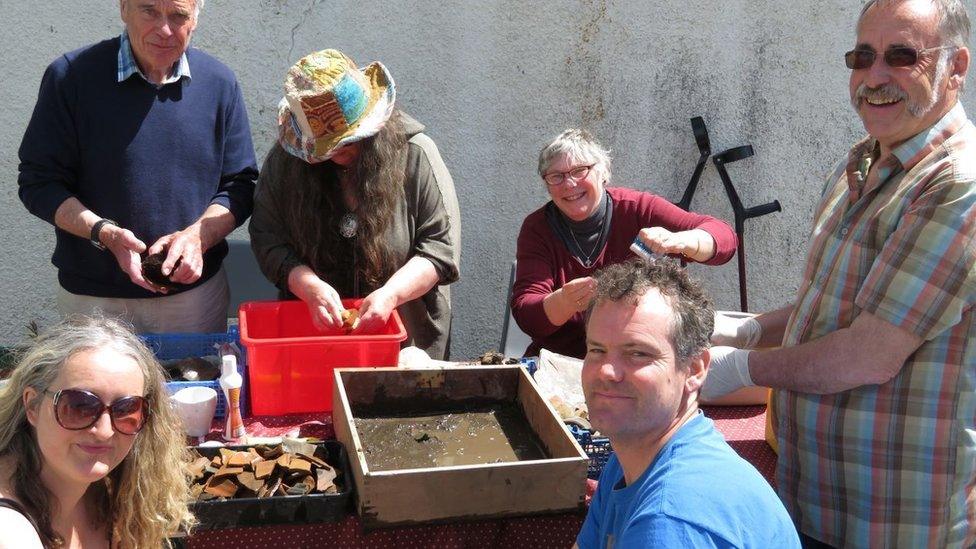
- Published11 July 2017
